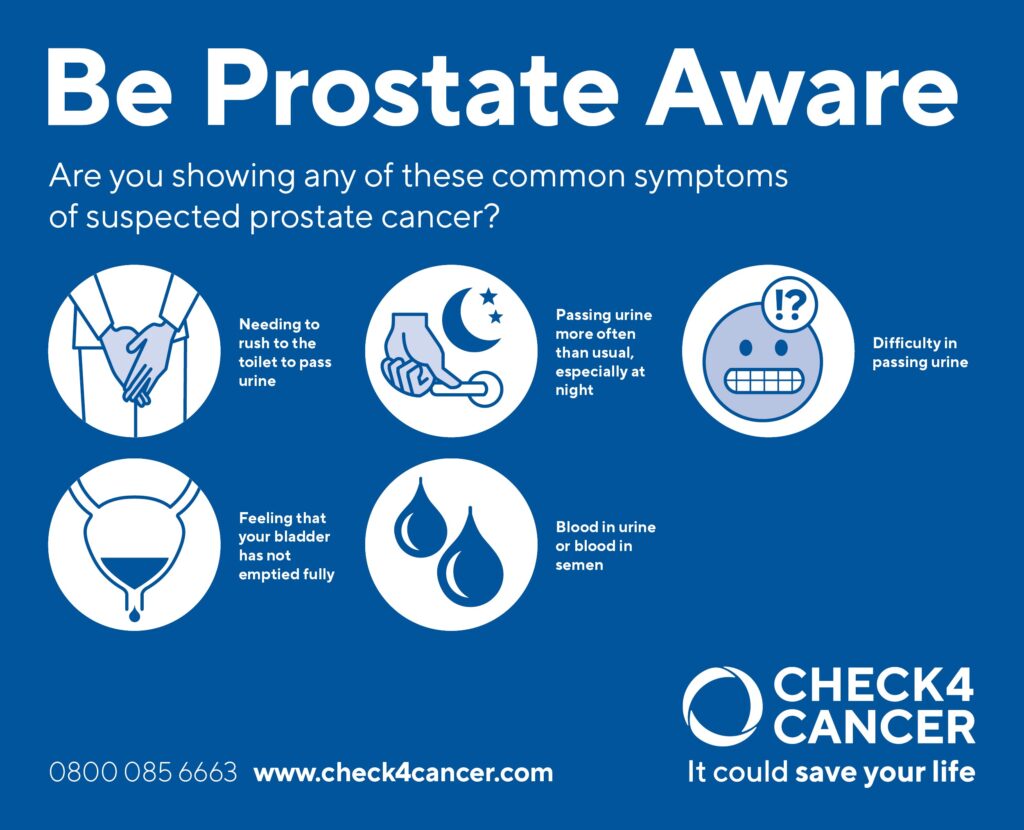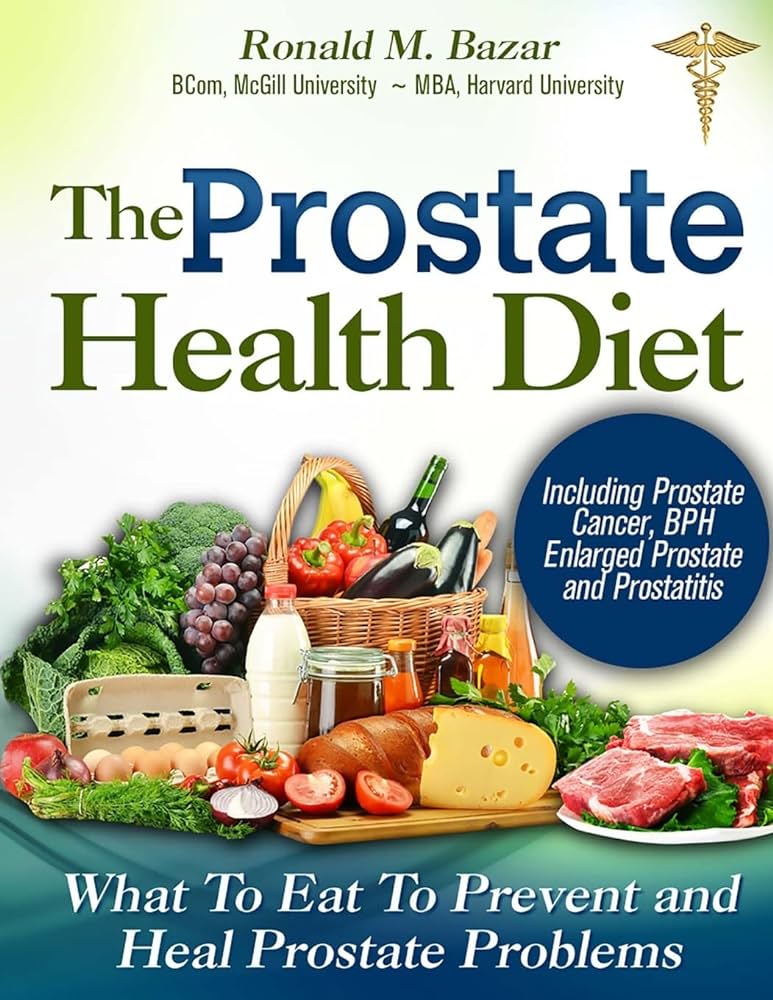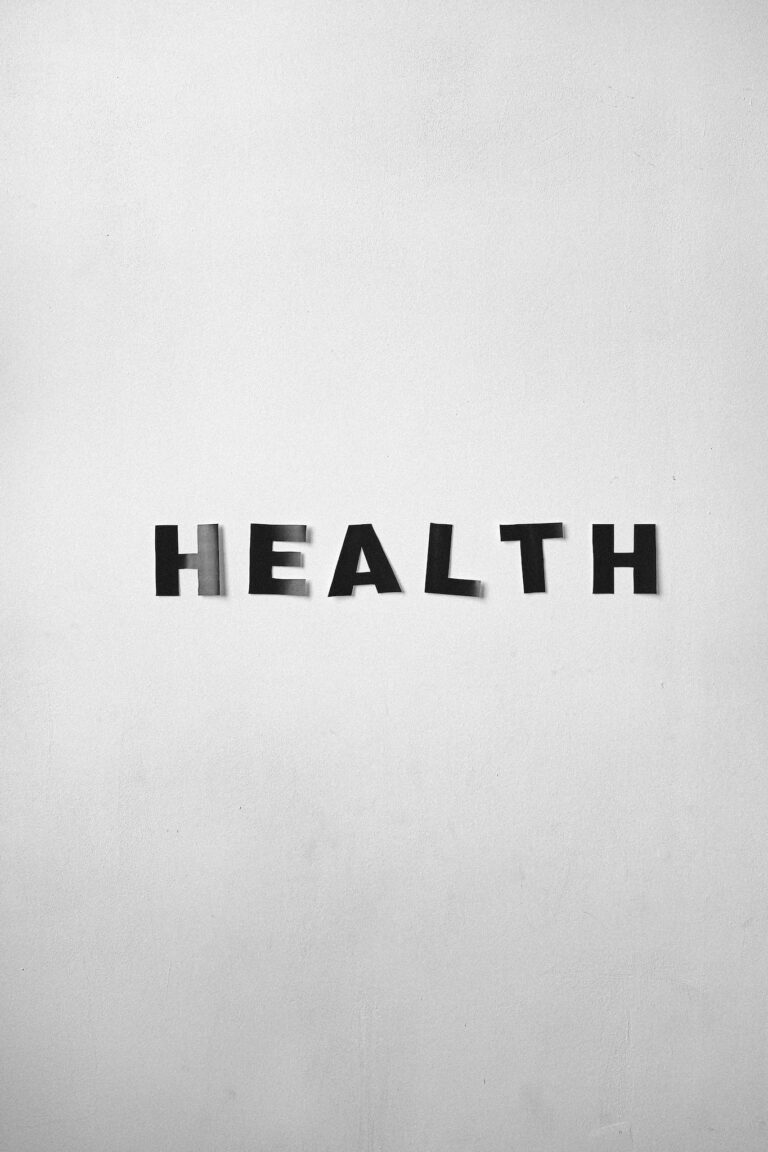Tailor This Diet Plan To Prevent And Treat Prostate Cancer

Understanding Prostate Cancer: A Comprehensive Overview

Prostate cancer is one of the most common forms of cancer among men, affecting thousands of individuals each year. It primarily impacts the prostate gland, a small walnut-shaped organ located beneath the bladder and surrounding the urethra. The prostate gland plays a crucial role in the male reproductive system, producing seminal fluid that helps nourish and transport sperm.
The development of prostate cancer occurs when abnormal cells in the prostate gland begin to multiply uncontrollably. This can lead to the formation of tumors and the potential spread of cancerous cells to other parts of the body. While the exact causes of prostate cancer are still being studied, certain risk factors have been identified, including age, family history, race, and genetic mutations. It is important to note that having one or more risk factors does not guarantee the development of prostate cancer, but it may increase the likelihood. Understanding the various aspects of prostate cancer, including prevention, detection, and treatment options, is key to managing this potentially life-threatening condition.
The Role of Diet in Prostate Cancer Prevention and Treatment

Prostate cancer is one of the most common types of cancer that affects men worldwide. While there are several factors that contribute to the development and progression of this disease, recent research has shown that diet plays a crucial role in both the prevention and treatment of prostate cancer.
Multiple studies have suggested that adopting a healthy, well-balanced diet can reduce the risk of developing prostate cancer. This includes consuming a variety of fruits and vegetables, whole grains, lean proteins, and healthy fats. These foods are rich in vitamins, minerals, and antioxidants that have been shown to have protective effects against prostate cancer.
In addition to reducing the risk of prostate cancer, following a healthy diet can also aid in the treatment of this disease. For instance, certain nutrients such as lycopene, found in tomatoes, have been found to have anti-cancer properties specifically targeting prostate cells. Likewise, consuming foods rich in zinc, selenium, and omega-3 fatty acids can help support overall prostate health and potentially inhibit tumor growth.
While diet alone cannot guarantee the prevention or cure of prostate cancer, it is clear that the foods we consume on a daily basis can have a significant impact on our overall prostate health. By adopting a prostate-healthy diet that incorporates a wide range of nutrient-rich foods, men can take a proactive approach towards reducing their risk of developing this debilitating disease and supporting their treatment journey.
Key Nutrients for Prostate Health and Cancer Prevention

Maintaining prostate health and preventing cancer require a well-rounded approach that includes proper nutrition and the intake of key nutrients. While no single nutrient can guarantee protection against prostate issues, several have been linked to improved prostate health and reduced cancer risk.
One essential nutrient for prostate health is lycopene, a powerful antioxidant found in tomatoes and other red fruits and vegetables. Numerous studies have suggested that lycopene may help lower the risk of prostate cancer. It is thought to work by neutralizing harmful free radicals and inhibiting the growth of cancer cells. Including tomatoes, tomato-based products, and other lycopene-rich foods in your diet can be beneficial for prostate health.
Another important nutrient for prostate health is selenium. This trace mineral is known for its antioxidant properties and is found in varying amounts in foods such as Brazil nuts, seafood, whole grains, and poultry. Selenium has been associated with a reduced risk of prostate cancer, although more research is needed to fully understand its mechanisms of action. Nonetheless, it is recommended to incorporate selenium-rich foods into your diet for overall prostate health.
Additionally, omega-3 fatty acids, commonly found in fatty fish like salmon and mackerel, have been studied for their potential prostate health benefits. These essential fats are known for their anti-inflammatory properties, which may help reduce chronic inflammation in the prostate gland. While some studies have suggested a possible protective effect of omega-3s against prostate cancer, further research is needed to clarify their role.
Incorporating foods rich in lycopene, selenium, and omega-3 fatty acids into your diet can be a valuable step towards promoting prostate health and potentially reducing the risk of prostate cancer. However, it is important to remember that proper nutrition is just one aspect of maintaining prostate health and preventing cancer. Regular check-ups, healthy lifestyle choices, and appropriate screenings are vital for overall prostate well-being.
Incorporating Fruits and Vegetables in Your Diet for Prostate Health
Fruits and vegetables play a crucial role in maintaining prostate health and preventing the occurrence of prostate cancer. These natural foods are rich in vitamins, minerals, and antioxidants that help to reduce inflammation, support detoxification processes, and enhance immune function. Additionally, the high fiber content of fruits and vegetables aids in regulating bowel movements and promoting a healthy digestive system.
While incorporating fruits and vegetables into your diet for prostate health, it is important to focus on variety and color. Different fruits and vegetables contain different beneficial compounds and nutrients, so aim to consume a wide range of options. Some examples of fruits and vegetables that are particularly beneficial for prostate health include tomatoes, berries, cruciferous vegetables (such as broccoli and cauliflower), leafy greens (like spinach and kale), and citrus fruits. By including a diverse range of colorful fruits and vegetables in your daily meals, you can ensure that you are obtaining a wide array of nutrients to support prostate health.
The Importance of Whole Grains and Fiber in Prostate Cancer Prevention
Whole grains and fiber play a crucial role in prostate cancer prevention. Research has shown that including these dietary components in your meals can have significant benefits for prostate health.
Whole grains, such as brown rice, whole wheat bread, and oatmeal, are rich in nutrients and contain the entire grain kernel. Not only do they provide essential vitamins, minerals, and antioxidants, but they also offer a good source of dietary fiber. Fiber is known for its ability to regulate bowel movements and promote a healthy digestive system. Additionally, studies have suggested that a high-fiber diet may lower the risk of developing prostate cancer. Fiber can help eliminate harmful toxins and waste from the body, reducing inflammation and preventing the accumulation of cancer-causing substances in the prostate gland.
Incorporating whole grains and fiber into your diet can be done in a variety of ways. Replace refined grain products, such as white rice and white bread, with whole grain alternatives. Opt for whole wheat pasta and quinoa instead of their refined counterparts. Additionally, aim to consume at least 25-30 grams of fiber per day from whole foods, such as fruits, vegetables, legumes, and whole grains. By making these simple dietary adjustments, you can significantly reduce your risk of developing prostate cancer and promote overall prostate health.
(Note: Scientific studies and clinical trials indicated in this section can be found in the available academic literature on prostate cancer prevention and nutrition. It is recommended to consult with a healthcare professional or nutritionist for personalized advice and guidance.)
Certainly! Here’s a short data table on the importance of whole grains and fiber in prostate cancer prevention:
| Whole Grains and Fiber for Prostate Cancer Prevention | Key Concepts | Credible Source |
|---|---|---|
| Dietary Fiber Benefits | – Key Concept: Dietary fiber from whole grains aids in digestion and may contribute to overall prostate health. | American Institute for Cancer Research – Fiber |
| – Considerations: A fiber-rich diet supports a healthy digestive system, potentially reducing cancer risk. | ||
| Whole Grains for Nutrient Diversity | – Key Concept: Whole grains offer a variety of nutrients, including antioxidants and phytochemicals, with potential protective effects. | Prostate Cancer Foundation – Nutrition and Prostate Cancer |
| – Considerations: Incorporating whole grains diversifies nutrient intake, supporting overall well-being. | ||
| Fiber’s Role in Lowering Cancer Risk | – Key Concept: Diets high in fiber have been associated with a lower risk of developing certain cancers, including prostate cancer. | Cancer.gov – Fiber and Cancer Prevention |
| – Considerations: Adequate fiber intake may contribute to a reduced risk of prostate cancer. | ||
| Whole Grains as Heart-Healthy Options | – Key Concept: Whole grains support heart health, and a heart-healthy diet may indirectly benefit prostate health. | Harvard Health Publishing – Whole Grains |
| – Considerations: Prioritizing heart-healthy foods contributes to overall cancer prevention strategies. |
Lean Proteins and Healthy Fats: Building Blocks for a Prostate-Healthy Diet
Lean proteins and healthy fats play a crucial role in maintaining a prostate-healthy diet. By incorporating these essential macronutrients into your meals, you can provide your body with the necessary building blocks for optimal prostate health.
When it comes to proteins, lean sources such as chicken, turkey, fish, and legumes are highly recommended. These options are lower in saturated fats, which are known to contribute to heart disease and other health issues. Additionally, they are excellent sources of high-quality protein, providing essential amino acids that support muscle growth, repair, and overall body function.
In terms of healthy fats, it is important to focus on monounsaturated and polyunsaturated fats, which can help reduce inflammation and promote cardiovascular health. Nuts and seeds, avocados, olive oil, and fatty fish like salmon and mackerel are examples of these healthy fat sources. Incorporating these into your meals can not only support prostate health but also offer a range of other wellness benefits. Sticking to a balanced diet that includes adequate amounts of lean proteins and healthy fats is a crucial step in maintaining a prostate-healthy lifestyle.
Reducing Processed Foods and Refined Sugars for Prostate Cancer Prevention
Processed foods and refined sugars have become staples in the modern Western diet, but their consumption has been linked to various health issues, including an increased risk of prostate cancer. These foods often lack the essential nutrients needed for optimal health and are typically high in unhealthy fats, sodium, and added sugars. Additionally, the processing techniques used to manufacture these foods can lead to the formation of harmful chemicals and preservatives.
Refined sugars, such as those found in sugary beverages, desserts, and processed snacks, can cause a rapid spike in blood sugar levels and lead to insulin resistance over time. Insulin resistance has been associated with an increased risk of prostate cancer and other chronic diseases. Moreover, excessive sugar consumption can contribute to weight gain, which is another risk factor for prostate cancer.
To reduce the consumption of processed foods and refined sugars, it is important to focus on consuming whole, unprocessed foods whenever possible. Opt for fresh fruits and vegetables, whole grains, lean proteins, and healthy fats. Additionally, reading food labels carefully and avoiding products that contain added sugars and artificial additives can help in making informed choices. By making these dietary changes, individuals may not only reduce their risk of prostate cancer but also improve their overall health and well-being.
The Impact of Dairy Products on Prostate Health
Dairy products are a staple in many people’s diets, providing a source of essential nutrients such as calcium and vitamin D. However, there has been ongoing debate about their impact on prostate health. Some studies suggest that high consumption of dairy products, especially whole milk, may increase the risk of developing prostate cancer.
One potential explanation for this link is the presence of hormones in dairy products. While naturally occurring hormones in cows are not harmful to humans in small amounts, excessive intake from dairy products could potentially disrupt hormone balance in the body. This is particularly concerning because certain types of prostate cancer are hormonally driven. However, more research is needed to fully understand the relationship between dairy products and prostate health.
In conclusion, the impact of dairy products on prostate health is still a topic of ongoing research and discussion. While some studies have suggested a potential link between high dairy consumption and increased prostate cancer risk, more evidence is needed to establish a definitive connection. In the meantime, it is advised to consume dairy products in moderation as part of a balanced diet and to choose low-fat options whenever possible. It is also important to consult with a healthcare professional for personalized dietary recommendations based on individual factors and medical history.
Exploring the Benefits of Plant-Based Proteins for Prostate Cancer Prevention
Plant-based proteins offer several benefits for prostate cancer prevention. They are rich in essential nutrients, such as vitamins, minerals, and antioxidants, which can help reduce the risk of developing this disease. Additionally, plant-based proteins are often lower in saturated fat and cholesterol compared to animal-based proteins, making them a healthier choice for overall prostate health.
One of the key advantages of plant-based proteins is their ability to provide high-quality amino acids necessary for the body’s protein synthesis. Legumes, such as beans, lentils, and chickpeas, are excellent sources of plant-based protein. They contain important amino acids, such as lysine, isoleucine, and phenylalanine, which are essential for optimal cellular function and prostate health. Incorporating these legumes into your diet can help maintain a healthy balance of nutrients, supporting a strong immune system and reducing the risk of prostate cancer.
Furthermore, plant-based proteins offer a wide variety of options that can easily be included in a prostate-healthy diet. Foods like tofu, tempeh, and edamame are rich in protein and can be used as alternatives to animal-based proteins. Additionally, nuts and seeds, including almonds, chia seeds, and flaxseeds, are excellent sources of plant-based protein and healthy fats. By including a diverse range of plant-based proteins in your diet, you can ensure that you are receiving the necessary nutrients for prostate cancer prevention and overall optimal health.
Antioxidants and Phytochemicals: Powerful Allies in the Fight Against Prostate Cancer
Antioxidants and phytochemicals have emerged as powerful allies in the fight against prostate cancer. These natural compounds, found in a variety of fruits, vegetables, herbs, and spices, have been shown to possess potent anti-inflammatory and anticancer properties.
One important group of antioxidants is carotenoids, which are responsible for the vibrant colors seen in many fruits and vegetables. Studies have suggested that increased intake of carotenoids, such as lycopene found in tomatoes and beta-carotene found in carrots, may reduce the risk of prostate cancer development. These phytochemicals work by neutralizing harmful free radicals and inhibiting the growth of cancer cells. Incorporating a variety of carotenoid-rich foods into your diet can provide a broad range of protective antioxidants to support prostate health.
In addition to carotenoids, other antioxidant-rich compounds are making waves in prostate cancer prevention. For instance, green tea contains catechins, which have been shown to possess anti-inflammatory and anticancer properties. Curcumin, a compound found in turmeric, has also gained attention for its potential to inhibit tumor growth and reduce inflammation. By including these antioxidant-rich foods in your diet, you can harness the power of phytochemicals and give yourself a fighting chance against prostate cancer.
Superfoods for Prostate Health: Nourishing Your Body for Prevention and Treatment
When it comes to prostate health, incorporating superfoods into your diet can have a significant impact on prevention and treatment. Superfoods are nutrient-dense foods that are rich in vitamins, minerals, antioxidants, and phytochemicals. These powerful compounds have been shown to have protective effects against prostate cancer and can help nourish your body for optimal prostate health.
One superfood that stands out for prostate health is tomatoes. Tomatoes are abundant in lycopene, a potent antioxidant that has been extensively studied for its role in reducing the risk of prostate cancer. Research has shown that regularly consuming tomatoes or tomato-based products can lower the risk of developing prostate cancer. Lycopene has been found to inhibit the growth of cancer cells and reduce inflammation in the prostate gland. To maximize the benefits, it is recommended to cook tomatoes as the heat enhances the bioavailability of lycopene.
Another superfood that deserves attention is green tea. Green tea is packed with polyphenols, which are powerful antioxidants known for their anti-cancer properties. Several studies have shown that drinking green tea regularly can help reduce the risk of prostate cancer and slow down its progression. The active compounds in green tea called catechins have been found to inhibit the growth of cancer cells and induce apoptosis (cell death) in prostate cancer cells. Aim for at least two cups of green tea daily to reap the potential benefits for prostate health.
Incorporating these superfoods, along with others such as broccoli, pomegranate, and turmeric, into your diet can provide a natural boost to prostate health. However, it’s important to remember that superfoods alone cannot replace a balanced diet and a healthy lifestyle. For optimal results, consult with a healthcare professional or a registered dietitian to create a personalized diet plan tailored to your specific needs and medical history. By nourishing your body with superfoods and adopting a prostate-healthy lifestyle, you can take proactive steps towards preventing and managing prostate cancer.
Understanding the Role of Vitamin D and Calcium in Prostate Cancer Prevention
Vitamin D and calcium play significant roles in maintaining overall health, and research suggests they may also have a role in prostate cancer prevention. Vitamin D is crucial for bone health and promotes the absorption of calcium in the body. It is primarily obtained through sunlight exposure, although dietary sources such as fatty fish, fortified dairy products, and egg yolks also contribute.
Studies have shown that vitamin D may help reduce the risk of prostate cancer. One study found that men with higher vitamin D levels in their blood had a lower risk of developing aggressive prostate cancer. Another study suggested that adequate vitamin D levels may slow the progression of early-stage prostate cancer. However, more research is needed to establish a direct causal relationship and to determine the optimal levels of vitamin D needed for prostate cancer prevention. Calcium, on the other hand, is essential for bone health, but evidence regarding its impact on prostate cancer risk is limited and inconclusive.
In conclusion, vitamin D and calcium are important nutrients that may influence prostate cancer risk. While maintaining sufficient levels of vitamin D is crucial for overall health, it is still unclear how much vitamin D and calcium intake specifically affect prostate cancer risk. As with any dietary considerations, it is best to consult with a healthcare professional or registered dietitian to tailor a diet plan that meets individual needs and supports optimal prostate health.
• Vitamin D is crucial for bone health and promotes the absorption of calcium in the body.
• It can be obtained through sunlight exposure as well as dietary sources such as fatty fish, fortified dairy products, and egg yolks.
• Studies have shown that higher vitamin D levels may reduce the risk of developing aggressive prostate cancer.
• Adequate vitamin D levels may also slow the progression of early-stage prostate cancer.
• However, more research is needed to establish a direct causal relationship and determine optimal vitamin D levels for prostate cancer prevention.
• Calcium is essential for bone health but its impact on prostate cancer risk remains inconclusive.
• Consult with a healthcare professional or registered dietitian to tailor a diet plan that supports optimal prostate health.
The Relationship Between Obesity, Exercise, and Prostate Cancer Risk
Obesity is a well-known risk factor for various health conditions, including prostate cancer. It is important to understand the relationship between obesity, exercise, and prostate cancer risk in order to make informed decisions about prevention and treatment strategies.
Several studies have indicated that obesity increases the risk of developing aggressive forms of prostate cancer. This may be due to the hormonal changes that occur in obese individuals, such as increased levels of insulin and estrogen. Additionally, excess body fat can contribute to chronic inflammation, which can promote the growth and progression of cancer cells.
On the other hand, regular exercise has been shown to have a protective effect against prostate cancer. Engaging in physical activity can help maintain a healthy weight, reduce inflammation, and improve overall health. A study published in the Journal of Clinical Oncology found that men who engaged in moderate to vigorous physical activity had a significantly lower risk of developing advanced prostate cancer compared to those who were sedentary.
While the exact mechanisms behind the relationship between obesity, exercise, and prostate cancer risk are still being explored, it is clear that maintaining a healthy weight and being physically active are important factors in reducing the risk of prostate cancer. Incorporating regular exercise into your daily routine and adopting a balanced, nutrient-rich diet can contribute to a prostate-healthy lifestyle. However, it is crucial to consult with a healthcare professional or a registered dietitian to create a personalized diet and exercise plan that suits your specific needs and goals.
Creating a Personalized Diet Plan: Consulting with a Professional for Optimal Results
Creating a personalized diet plan for optimal prostate health is a crucial step in preventing and managing prostate cancer. While following a general prostate-healthy diet can be beneficial, consulting with a professional nutritionist or dietitian can provide you with personalized recommendations tailored to your specific needs and goals.
A professional will assess your current diet, lifestyle factors, medical history, and individual nutritional requirements to design a comprehensive diet plan. They will take into account various factors such as age, weight, activity level, and any existing health conditions to create a plan that suits you best. By incorporating your preferences and dietary restrictions, they ensure that the diet plan is practical and sustainable for the long term.
During a consultation, the professional will guide you on nutrient-rich foods to include in your diet, such as fruits, vegetables, whole grains, lean proteins, and healthy fats. They will help you understand the importance of specific nutrients, such as antioxidants, phytochemicals, and vitamins, as they play a significant role in reducing the risk of prostate cancer and promoting overall prostate health. Additionally, they may recommend certain supplements or herbal remedies based on scientific evidence and clinical studies to further support your prostate health.
Consulting with a professional for your personalized diet plan ensures that you receive expert guidance and support in making dietary changes to optimize your prostate health. Their expertise can help you navigate through the abundance of information available and focus on evidence-based recommendations. With their guidance, you can develop a sustainable diet plan that suits your lifestyle and promotes a healthy prostate. Remember, taking proactive steps towards your prostate health through personalized nutrition can have a significant impact on your overall well-being.
What is prostate cancer?
Prostate cancer is a type of cancer that forms in the tissues of the prostate gland, which is located below the bladder in men.
How does diet play a role in prostate cancer prevention and treatment?
Diet can play a significant role in prostate cancer prevention and treatment. Certain nutrients and foods have been shown to have protective effects against prostate cancer, while others may increase the risk.
What are some key nutrients for prostate health and cancer prevention?
Some key nutrients for prostate health and cancer prevention include lycopene, selenium, vitamin E, and omega-3 fatty acids.
How can I incorporate fruits and vegetables into my diet for prostate health?
You can incorporate fruits and vegetables into your diet for prostate health by aiming for at least five servings per day, including a variety of colorful options.
Why are whole grains and fiber important for prostate cancer prevention?
Whole grains and fiber are important for prostate cancer prevention because they can help regulate hormone levels, promote healthy digestion, and reduce inflammation.
What are some examples of lean proteins and healthy fats that are beneficial for prostate health?
Examples of lean proteins and healthy fats that are beneficial for prostate health include fish, chicken breast, legumes, nuts, seeds, and olive oil.
Should I avoid processed foods and refined sugars for prostate cancer prevention?
Yes, it is recommended to reduce the consumption of processed foods and refined sugars for prostate cancer prevention, as they can lead to inflammation and other health issues.
How do dairy products impact prostate health?
Some studies suggest that high intake of dairy products, particularly whole milk and cheese, may increase the risk of prostate cancer. It is recommended to consume these foods in moderation.
Are plant-based proteins beneficial for prostate cancer prevention?
Yes, plant-based proteins such as beans, lentils, tofu, and tempeh are beneficial for prostate cancer prevention as they are low in saturated fat and high in fiber.
What role do antioxidants and phytochemicals play in the fight against prostate cancer?
Antioxidants and phytochemicals have been shown to have protective effects against prostate cancer by neutralizing harmful free radicals and reducing inflammation.
Are there any superfoods that specifically support prostate health?
Yes, some superfoods that specifically support prostate health include tomatoes, cruciferous vegetables (such as broccoli and cauliflower), green tea, and pomegranate.
How does vitamin D and calcium relate to prostate cancer prevention?
Adequate levels of vitamin D and calcium have been associated with a lower risk of prostate cancer. It is important to include food sources rich in these nutrients in your diet.
What is the relationship between obesity, exercise, and prostate cancer risk?
Obesity and lack of physical activity have been linked to an increased risk of prostate cancer. Maintaining a healthy weight and engaging in regular exercise can help reduce this risk.
Should I consult with a professional to create a personalized diet plan for optimal results?
Yes, consulting with a professional, such as a registered dietitian or nutritionist, can help you create a personalized diet plan tailored to your specific needs and goals for optimal results in prostate cancer prevention and treatment.






